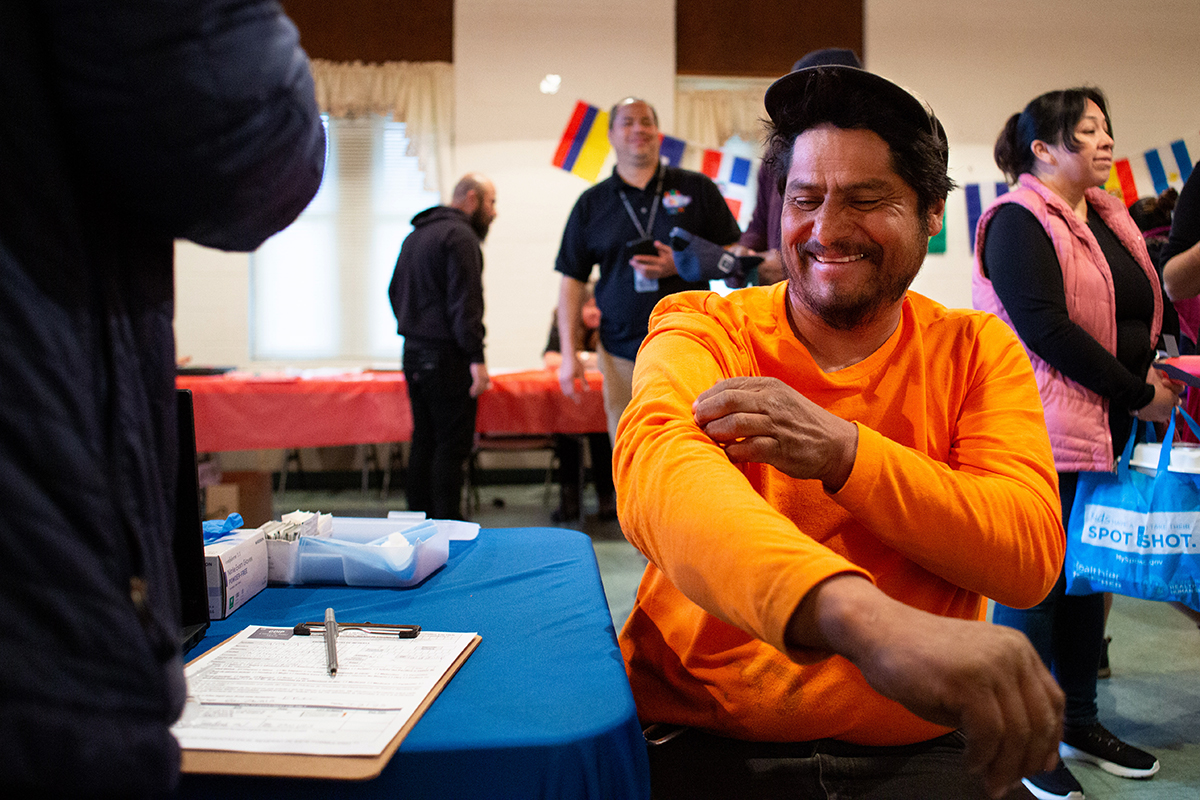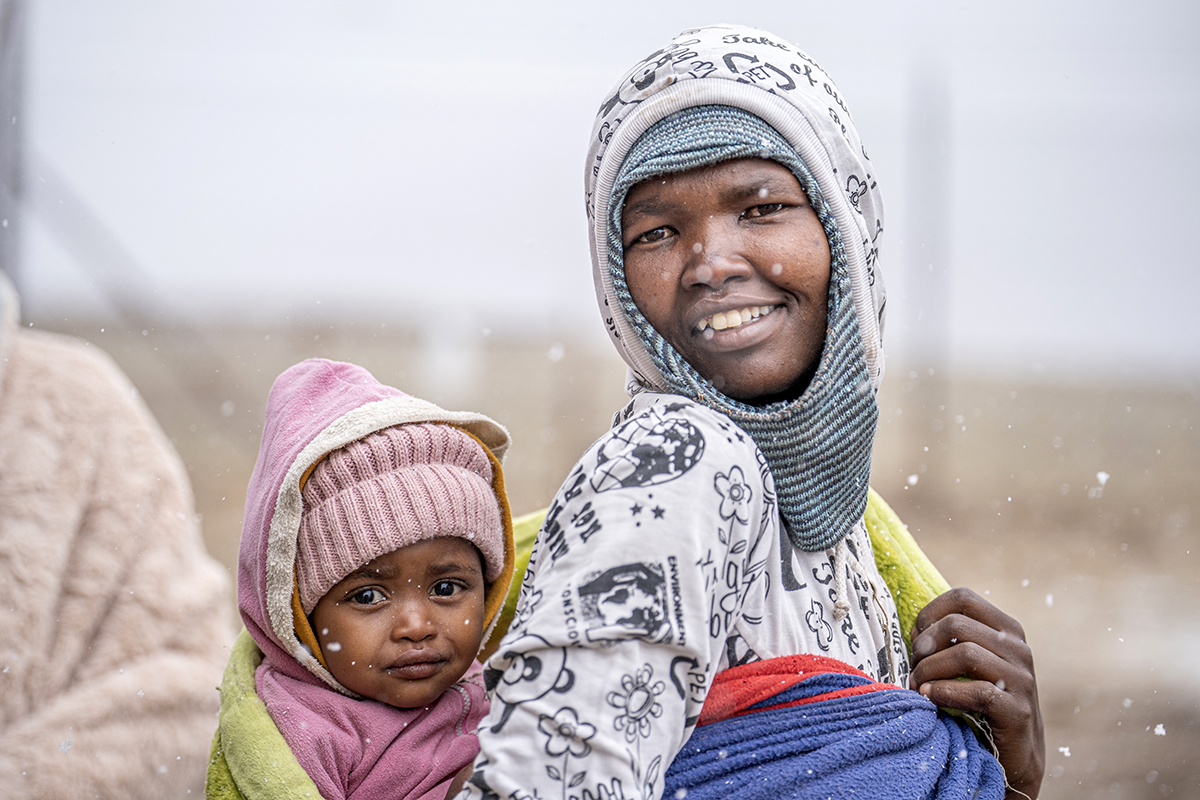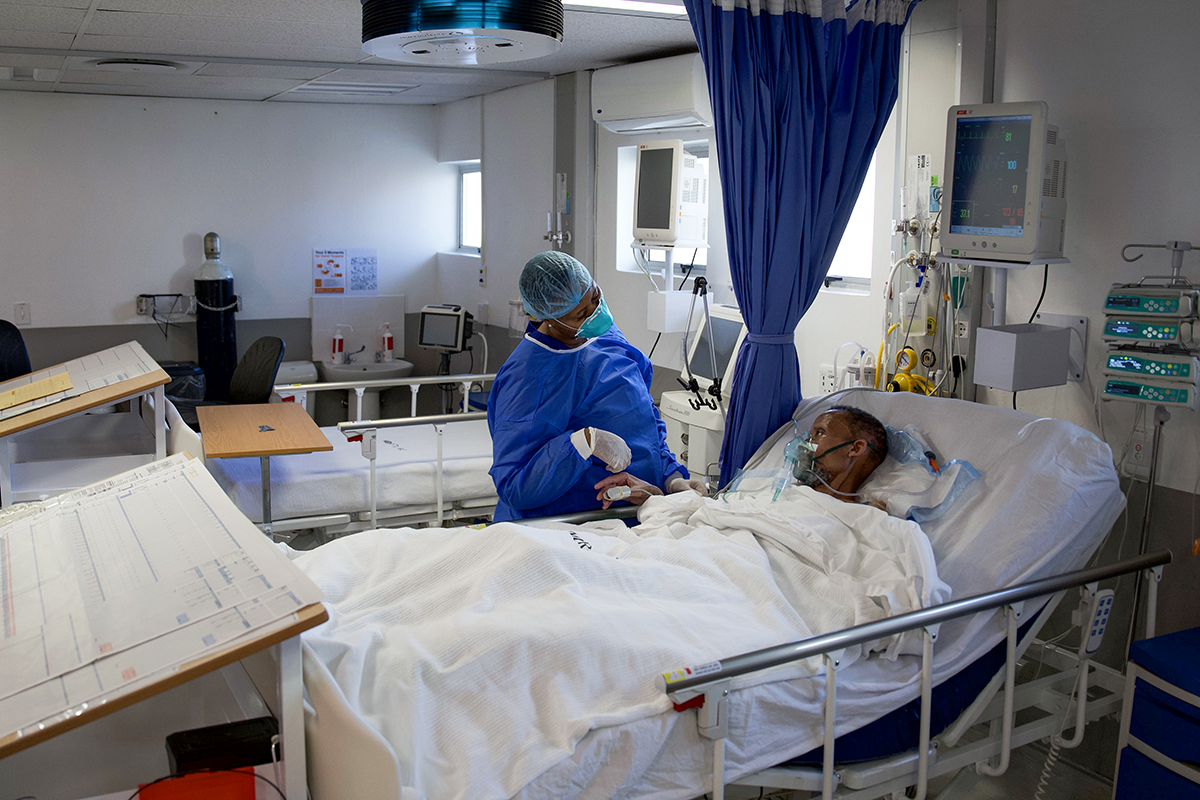
Child Health
Every day, over 13,000 children die worldwide from conditions that could be prevented or treated.
Most of these conditions—including pneumonia, malaria, and malnutrition—have seemingly simple remedies, such as vaccines, bed nets, and clean drinking water. But poverty and systemic injustice prevent children from receiving the care they need.
Partners In Health is on a mission to change that. We provide health care and social support for children in our communities around the world, delivering compassionate care to society’s most vulnerable. We do this while strengthening health systems to ensure that future generations receive the care they need.
Our program areas range from malnutrition to HIV but have one idea in common—no child should die because they lack access to care.
Our Impact
In 2021, PIH-supported facilities administered 409,636 childhood vaccines
In 2021, 6,684 children were enrolled in malnutrition programs at PIH facilities.
Malnutrition
Globally, 45% of child deaths under 5 years are linked to malnutrition. More than 149 million children under 5 were stunted & 45 million were waisted according in 2020 to the WHO.
In Haiti, we operate malnutrition clinics that provide screenings and lifesaving treatment called Nourimanba, a peanut-based, vitamin- and mineral-rich supplement produced at our centralized facility. In Malawi, thousands of children are at risk of dying or suffering complications from malnutrition every year. In fact, fall is often known as the “hunger season,” as families exhaust food stored from the previous harvest, new crops have yet to mature, and food prices soar. In 2021, over 6,500 children were receiving treatment for malnutrition at PIH facilities.
Infectious Diseases
Children in the vulnerable communities where we work often face an increased risk of infectious diseases, including HIV and malaria. In 2021, PIH-support facilities administered close 410,000 childhood vaccines to prevent these illnesses.
Each day, about 400 children under 5 are infected with HIV according to UNICEF. Most of these children live in poor countries and could have been protected from contracting the virus if their mothers had had access to proper testing and antiretroviral treatment during and after pregnancy.
To respond to this issue, we began offering HIV treatment to a select group of patients in Haiti in 1998, two years after the treatment became available in the United States. The HIV Equity Initiative, as it was called, allowed patients to receive treatment in their homes, at the hands of community health workers. Patients quickly regained their health, and PIH leaders published their results in a 2001 article in The Lancet.
The HIV Equity Initiative proved to the world that excellent, lifesaving HIV care could be delivered to people living in the world’s poorest regions. Now, thousands of pregnant women and their children have access to free antiretrovirals as part of their basic health services in Haiti, as well as in Rwanda, Malawi, and Lesotho.
Malaria – another treatable disease that needlessly takes lives – affects many of the communities where we work, putting children at risk. We’ve focused our efforts on increasing access to treatment, often accomplished through mobile clinics in which staff travel to remote, rural areas to provide testing and medication. During a single rainy season in Neno District, Malawi, we treated more than 16,500 children under 5 for malaria.
Neonatal Care
At Partners In Health, we know that access to care is key to saving a newborn's life. The first four weeks of a child's life is when a child is most vulnerable. In 2020, 2.4 million newborns died during this time.
That's why we are working to increase access to and infrastructure of neonatal intensive care units (NICUs) in remote areas. In Kirehe, Rwanda PIH recently renovated the district hospital's NICU to increase bed capacity, hygiene, and offering mothers safe spacing for rest and breastfeeding during their child's stay. Kirehe District Hospital is now better prepared to care for the up to 160 newborns the hospital oversees each month. This is massive step towards allowing newborns to not only survive, but thrive.
Education and Social Support
Our work in vulnerable communities has taught us that social support, including educational assistance, is key to protecting children’s health. In 2020, over 200,000 packages were provided to families.
In Malawi, we support school-age children and their families by covering educational fees such as tuition and supplies. Beyond education, our social support in the country includes food packages, new home construction and emergency repairs, and reimbursement for transportation to hospitals and health clinics. Our social support provides critical resources to families as they break the cycle of poverty and ensure a better future for their children.
In Peru, our work extends into the home as well. Our health educators visit families with young children at risk of developmental delays and teach caregivers how to promote age-appropriate behaviors. We also support a local community center where teenagers from impoverished neighborhoods come for after-school activities.
Featured Child Health Videos


